Key Data Highlights
- 85% of Fortune 500 companies use 360-degree feedback for leadership development.
- The manager-to-employee ratio has widened from 1:5 in 2017 to 1:15 in 2023, limiting coaching capacity.
- 70% of organizational transformations fail due to lack of middle-management engagement.
- Companies that invest in leadership development are 2.4 times more likely to meet their performance targets.
- Strong delegation practices lead to 33% higher employee engagement.
- 50% of Gen Z professionals avoid middle-management roles, citing “high stress, low reward” responsibilities.
Mid-level managers are uniquely positioned between strategy and execution. They manage teams, monitor performance, and act as a critical link between senior leadership and frontline employees. However, it is important to recognize that not all mid-level managers naturally possess leadership potential. To truly unlock value from this layer, organizations must move beyond assumptions and adopt a structured approach to systematically identify high performers and future leaders. This involves carefully assessing both their current contributions and their capacity to grow into more strategic roles, ensuring that the right individuals are groomed for higher responsibilities.
Identifying the potential in Mid-Level Managers
This involves:
Performance Metrics: Evaluating year-on-year KPI achievements while also assessing broader leadership qualities such as decision-making, adaptability, and people management.
Behavioral Assessments: Applying tools like 360-degree feedback to measure collaborative skills, emotional intelligence, problem-solving ability, and both verbal and non-verbal communication. Today, nearly 85% of Fortune 500 companies use 360-feedback as part of their leadership development process, reflecting its value in shaping future leaders.
Career Aspiration Mapping: Gaining clarity on the personal ambitions of mid-level employees to align their career goals with organizational opportunities.
By systematically identifying individuals who consistently demonstrate initiative, resilience, and the ability to inspire others, organizations can nurture a strong pipeline of future leaders who are ready to take on higher responsibilities.
Continuous Communication and Idea Sharing
For mid-level managers to truly thrive, communication must be a two-way process. In many organizations, information primarily flows from the top down, leaving middle managers as passive recipients rather than active contributors. To overcome this, companies should create opportunities for continuous dialogue and structured idea-sharing platforms where mid-level voices are heard and valued.
Open Forums & Town Halls: Regular sessions that allow mid-level managers to exchange ideas and concerns directly with leadership.
Cross-Functional Workshops: Collaborative spaces where managers from different departments jointly explore solutions to organizational challenges.
Digital Platforms for Idea Sharing: Online systems to capture, refine, and track suggestions from managers in real time.
This is particularly important because the average manager-to-employee ratio has stretched from 1:5 in 2017 to about 1:15 in 2023, making it harder for managers to be closely engaged with their teams. By reinforcing communication and feedback loops, organizations can bridge this widening gap.
Most importantly, the process must not end with idea collection. Top management should provide timely and constructive feedback on the suggestions raised, demonstrating that mid-level contributions are taken seriously and acted upon. This practice not only builds trust and accountability but also fosters a culture where mid-level managers feel a genuine sense of ownership in organizational development.
Involving Mid-Level Managers in Strategic Decision
To maximize their impact, mid-level managers must be actively engaged in key organizational projects. In many organizations, senior leadership conducts Annual Business Planning programs, yet the participation of mid-level managers is often overlooked. Ensuring their inclusion in such strategic forums not only enriches the planning process with practical insights but also instills a stronger sense of accountability.
Also Read: While Tackling US Tariffs, Let’s Not Overlook the EU Hurdle
Beyond planning, engaging mid-level managers in cross-departmental initiatives—such as digital transformation, sustainability programs, or process re-engineering—broadens their business acumen and sharpens their problem-solving skills. With studies showing that over 70% of organizational transformations fail due to lack of middle-management engagement, their active involvement becomes indispensable.
By entrusting mid-level managers with responsibility for high-impact projects, organizations send a powerful message: your role is critical, and your contributions extend far beyond your functional silo. This recognition fuels motivation, builds confidence, and prepares them for greater leadership responsibilities.
Learning and Skill Development
Designing learning and development programs is the cornerstone of mid-level empowerment. While technical expertise remains valuable, the greater need lies in cultivating leadership competencies such as strategic thinking, negotiation, conflict resolution, innovation, and the ability to lead diverse teams.
Organizations should therefore create specialized and structured learning interventions that go beyond traditional training and are directly linked to organizational goals. These may include:
Leadership Development: Building vision, accountability, and decision-making capabilities.
Change Management: Equipping managers to lead teams effectively through transitions and disruptions.
Communication & Influence: Enhancing verbal, non-verbal, and persuasive communication skills to inspire and align teams.
Data-Driven Decision Making: Strengthening analytical ability to interpret data and make informed business choices.
Recent surveys indicate that companies investing in leadership development programs are 2.4 times more likely to hit their performance targets, proving the direct link between training and organizational growth.
By investing in such tailored learning programs, organizations not only strengthen mid-level competencies but also prepare them as future-ready leaders capable of driving long-term growth and transformation.
Challenges in Empowering Mid-Level Management
One of the recurring challenges in empowering mid-level managers is delegation. Senior leaders often hesitate to delegate, either out of fear of losing control, doubt about their managers’ capabilities, or the belief that “doing it myself is faster.” Such tendencies not only burden senior leadership but also limit the growth of mid-level talent.
To overcome this, organizations must consciously embed delegation as a leadership culture. Delegation is not simply about transferring tasks—it is about building trust, accountability, and capability. Research shows that organizations with strong delegation practices report 33% higher employee engagement compared to those where leaders fail to delegate effectively.
When leaders delegate effectively, they free themselves to focus on strategic priorities, while simultaneously providing mid-level managers with opportunities to learn, take ownership, and demonstrate leadership potential.
How to Delegate Effectively
Define Clear Outcomes – Communicate what success looks like, not just the task itself.
Match Tasks to Strengths – Assign responsibilities based on managers’ competencies and developmental needs.
Provide Resources & Authority – Ensure managers have the tools, information, and decision-making power to succeed.
Monitor Without Micromanaging – Set checkpoints for progress but allow freedom in execution.
Give Constructive Feedback – Recognize efforts, highlight areas for improvement, and encourage continuous growth.
When practiced consistently, effective delegation strengthens leadership at every level, creating a more resilient and future-ready organization.
Conclusion
Empowering mid-level management is not just about filling a structural gap—it is about unlocking the hidden engine of organizational growth. By identifying their potential, fostering communication, involving them in strategic decision making, creating platforms for access, and investing in learning programs, companies can unleash immense value.
True empowerment cannot happen without addressing delegation. Senior leaders must entrust responsibilities, while mid-level managers must rise to the occasion with accountability.
Organizations that invest in their mid-levels are building the foundations of resilience, innovation, and long-term success.
About the Author
Biplob Barua brings 24+ years of experience in the RMG sector, having worked with leading organizations like Youngone Corporation and DBL Group. Currently General Manager, Strategic HR at Urmi Group, he shapes people strategies to align HR with business growth. A Certified Professional (SHRM-CP, USA), he is recognized for driving change management, productivity, and a culture of accountability.







Its a very informative and effective article for textile leader. Thanks for sharing this with us sir.
Engagement in Transformations
The article stresses that 70% of transformations fail due to mid-management disengagement but doesn’t fully explore the “why.”
Challenge: What incentives, recognition systems, or cultural shifts can truly motivate mid-level managers to buy into transformation programs?
Career Aspiration Mapping
Aligning organizational opportunities with individual career goals is valuable, but in reality, organizations often have limited senior-level seats.
Challenge: How to manage expectations and keep talented mid-managers engaged if upward mobility opportunities are scarce?
Gen Z Leadership Gap
With 50% of Gen Z professionals avoiding middle-management roles, organizations may face a future shortage of willing candidates.
Challenge: How to redesign the mid-management role to make it more attractive, less stressful, and more rewarding for the next generation?
Overall, the article gives a robust conceptual framework, but the execution challenges biases in feedback, workload imbalance, cultural resistance to delegation, limited career growth, and generational shifts need deeper exploration for organizations to act effectively.
Congratulations dear sir
Great contribution for Businesses Knowledge Industry, keep going…….